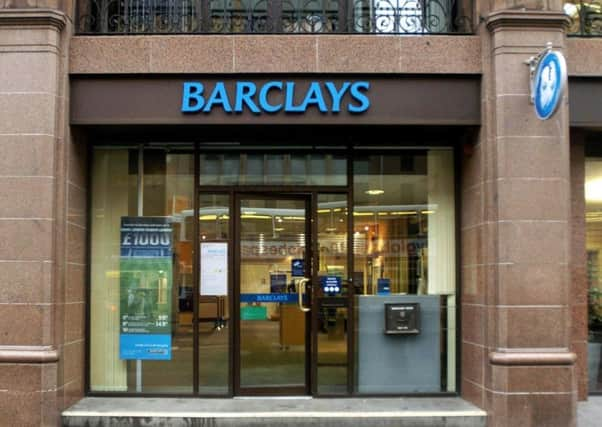FCA says ex-Barclays executive should be banned
This article contains affiliate links. We may earn a small commission on items purchased through this article, but that does not affect our editorial judgement.


The Financial Conduct Authority (FCA) claims that Andrew Tinney – formerly global chief operating officer of Barclays Wealth & Investment Management – suppressed damning findings of a 29-page internal report into culture and management in the US wealth division.
It said Tinney should be banned from carrying out any senior management or “significant influence functions” in any regulated financial service provider, but he is contesting the decision and is taking the case to a tribunal.
Advertisement
Hide AdAdvertisement
Hide AdThe FCA alleges that the report, which was compiled by an external consultancy in 2012, found that Barclays Wealth Americas (BWA) “pursued a course of revenue at all costs and had a culture that was high risk and actively hostile to compliance”. It also recommended the banking giant should replace some of the senior management in BWA.
But the FCA claims Tinney made sure the report and its findings would not be seen by others, was not entered into the firm’s records or IT systems and told the consultancy not to circulate a copy.
In its decision, the FCA said his misconduct was serious, “particularly in the light of his seniority at the firm, his substantial industry experience and the obvious significance of the concerns giving rise to, and set out in, the report”.
The FCA also claims Tinney denied the report had ever existed, after an anonymous email was sent to Marcus Agius, the then chairman of Barclays, alerting him to a secret wealth cultural audit report that had been covered up.
He went on to dismiss the report as “interview notes” and “rough notes” when the Federal Reserve Bank of New York asked for a copy of the BWA cultural audit, according to the FCA.
Barclays eventually received a copy of the report from the consultancy that compiled it and subsequently suspended Tinney. He then resigned from the firm in early 2013.
While the report did not mention or criticise Tinney, the FCA said his alleged actions were particularly serious, given that Barclays was at the time under scrutiny of the Salz review into business practices at the bank following the Libor rate-rigging scandal.
The regulator added it believes Tinney has also since given a misleading account of some events in the case in interviews with the FCA in 2014 and 2015, as well as in correspondence with the Institute of Chartered Accountants in England & Wales through his solicitors.
Advertisement
Hide AdAdvertisement
Hide AdBarclays first commissioned the internal report after the US Securities and Exchange Commission (SEC) found some regulatory issues within BWA in America. Tinney was appointed chairman of a committee tasked with addressing the issues uncovered by the SEC.
